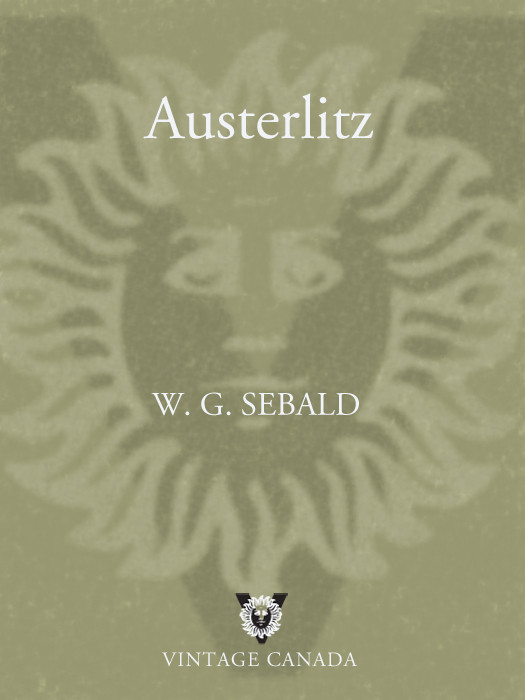

Most ebook files are in PDF format, so you can easily read them using various software such as Foxit Reader or directly on the Google Chrome browser.
Some ebook files are released by publishers in other formats such as .awz, .mobi, .epub, .fb2, etc. You may need to install specific software to read these formats on mobile/PC, such as Calibre.
Please read the tutorial at this link: https://ebookbell.com/faq
We offer FREE conversion to the popular formats you request; however, this may take some time. Therefore, right after payment, please email us, and we will try to provide the service as quickly as possible.
For some exceptional file formats or broken links (if any), please refrain from opening any disputes. Instead, email us first, and we will try to assist within a maximum of 6 hours.
EbookBell Team

4.4
82 reviewsFrom one of the undisputed masters of world literature, a haunting novel of sublime ambition and power about a man whose fragmentary memories of a lost childhood lead him on a quest across Europe in search of his heritage.
Jacques Austerlitz is a survivor – rescued as a child from the Nazi threat. In the summer of 1939 he arrives in Wales to live with a Methodist minister and his wife. As he grows up, they tell him nothing of his origins, and he reaches adulthood with no understanding of where he came from. Late in life, a sudden memory brings him the first glimpse of his origins, launching him on a journey into a family history that has been buried.
The story of Jacques Austerlitz unfolds over the course of a 30-year conversation that takes place in train stations and travellers’ stops across England and Europe. In Jacques Austerlitz, Sebald embodies the universal human search for identity, the struggle to impose coherence on memory, a struggle complicated by the mind’s defences against trauma. Along the way, this novel of many riches dwells magically on a variety of subjects – railway architecture, military fortifications, insects, plants and animals, the constellations, works of art, a small circus and the three cities that loom over the book, London, Paris and Prague – in the service of its astounding vision.
From the Hardcover edition.
Amazon.com ReviewIf the mark of a great novel is that it creates its own world, drawing in the reader with its distinctive rhythms and reverberations, then W.G. Sebald's Austerlitz may be the first great novel of the new century. An unnamed narrator, resting in a waiting room of the Antwerp rail station in the late 1960s, strikes up a conversation with a student of architecture named Austerlitz, about whom he knows almost nothing. Over the next several years, the narrator often runs into his odd, engaging acquaintance by chance on his travels, until finally, after a gap of two decades, Austerlitz decides to tell the narrator the story of his life and of his search for his origins in wartime Europe. Slow and meditative, relying on the cumulative effect of its sedate, musical prose and its dark subject matter (illuminated here and there with hope), Sebald's novel doesn't overturn the conventions of fiction, but transcends them. It is a love story to history and vanished beauty. Don't let the slow beginning turn you away. Austerlitz takes its time getting off the ground, but is well worth seeing in flight. --Regina Marler
From Publishers WeeklyThe ghost of what historian Peter Gay calls "the bourgeois experience," molded in the liberalism and neurasthenia of the 19th century and destroyed in the wars and concentration camps of the 20th century, haunts W.G. Sebald's unique novels. His latest concerns the melancholic life of Jacques Austerlitz who, justifiably, exclaims, "At some point in the past, I thought, I must have made a mistake, and now I am living the wrong life." The unnamed narrator met Austerlitz, an architectural historian, in Belgium in the '60s, then lost track of his friend in the '70s. When they accidentally run into each other in 1996, Austerlitz tells the story that occupies the rest of the book the story of Austerlitz's life. For a long time, Austerlitz did not know his real mother and father were Prague Jews his first memories were of his foster parents, a joyless Welsh couple. While exploring the Liverpool Street railroad station in London, Austerlitz experiences a flashback of himself as a four-year-old. Gradually, he tracks his history, from his birth in Prague to a cultivated couple through his flight to England, on the eve of WWII, on a train filled with refugee children. His mother, Agata, was deported first to Theresienstadt and then, presumably, to Auschwitz. His father disappeared in Paris. Austerlitz's isolation and depression deepen after learning these facts. As Sebald's readers will expect, the novel is filled with scholarly digressions, ranging from the natural history of moths to the typically overbearing architecture of the Central European spas. In this novel as in previous ones, Sebald writes as if Walter Benjamin's terrible "angel of history" were perched on his shoulder. B&w photos. (Oct.)Forecast: Gambling (safely) on Sebald's progress from cult favorite to major figure, Random House has picked up the author from former publisher New Directions and is sending him on an author tour. Though his latest isn't as startling and exciting as The Emigrants or The Rings of Saturn, it is a significant achievement, and Sebald should continue to attract ever more attention.
Copyright 2001 Cahners Business Information, Inc.